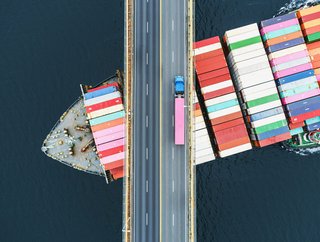Scope 3: Who’s responsible and how do they report?

Who’s responsible for ensuring that the world reaches its emissions reduction targets? Inevitably everyone has a part to play when undergoing such a massive transition to reshape the future climate of the planet. The impending irreversible impacts of climate change are merely predictions from lengthy sources of data and information provided by well-researched bodies.
As a result, organisations can only do the same—i.e. turn to data to discover their impact and showcase it in a measurable, actionable format. However, such a task is not as simple as it may seem. One business cannot simply record data for its entire supply chain, leaving Scope 3 emissions—those of their suppliers’ suppliers—a difficult calculation to make without consistent collaboration. For commercial accountability, it’s looking like the world needs businesses to create an interconnected web of information sharing in order to fully understand their trailing impacts.
For Mike Barber, Partner in ESG and Risk Advisory at Deloitte, data and insight generates an understanding of the routes businesses can choose to reduce their environmental impacts in the most effective, least disruptive way.
“I'm interested in measuring the gamut of impacts that organisations have, deliberate and incidental, and then helping them factor those in. Some of those can be monetised. You can put a proxy price on carbon in some circumstances, but you can also measure lots of dimensions of ESG to help organisations then make more qualitative decisions and understand the difference between path A and path B,” Barber explains.
“The reason that we talk about Scope 3 emissions is because it's required by organisations to take a view of their position in the value chain, and that for almost all organisations means looking up and downstream.”
From this point, we can gather that both suppliers and customers are integral to the overall success of emissions reduction efforts for their supply chains. Simply asking the question, ‘who is responsible for Scope 3?’, opens up the conversation to evaluate their progress and begin taking action on both sides. This also opens up the discussion to the complexities and differences between organisations and their emissions footprints depending on their position.
“If you are an oil major, the vast majority of your Scope 3 will be embedded in the product that you sell—they know very acutely what they're selling both in terms of volume and in terms of characteristic,” says Barber.
“Generating a Scope 3 footprint for that chunk of what you do is relatively more straightforward than for perhaps an organisation that sits right in the middle of a value chain. A complicated series of transactions looks further back into its supply chain and perhaps doesn't show transparency of how its products are used after it has performed its role within that value chain.”
From his perspective of ESG and risk, Barber is highlighting the importance of full transparency. ‘Full’ meaning that organisations may be lacking in data from previous transactions—prior to sustainability strategy to even an understanding of its importance. Data doesn’t just look forward, but it also goes backwards in order to set benchmarks, analyse longer periods of progress, and understand the level of carbon embedded in the history of a supply chain.
Again, this isn’t solely supported by supply chains. To achieve historical transparency, it’s important to look back into past business to draw out the full extent of a company’s impact—albeit for many this can seem impossible.
“As a supplier, ultimately you have the control to measure and reduce your emissions. You are able to provide the data needed within the supply chain when it's requested,” says Tom Caldicott, Product Strategy Manager (UL360 Sustainability and ESG Solutions) at UL Solutions.
“But in practice, where we see the most success is when you've got a shared responsibility between the suppliers and customers, and where that responsibility is acknowledged.”
Caldicott also shares a great example of how businesses can get their stakeholders on board with their emissions targets. In order to fully understand their requirements, but also get their data on board, put all of them in a room and give them the knowledge and skills to do so. This is something that UL sees as more businesses look for transparency both upstream and downstream.
With almost as many Scope 3 emissions reporting categories in the value chain as there are Sustainable Development Goals (SDGs) promoted by the United Nations, Caldicott emphasises the complexities that companies see.
“It can be an expensive exercise when you’re trying to cover 15 categories,” says Caldicott.
“Scope 3 is featured heavily in the Corporate Sustainability Reporting Directive (CSRD), the proposed SEC climate disclosure, regulation, and other areas, such as science based targets. So, executives are realising that they have to get serious about Scope 3 carbon reduction, and they've got to gain a clearer understanding—it's rapidly becoming non negotiable for them.”
**************
Make sure you check out the latest edition of Sustainability and also sign up to our global conference series - Sustainability LIVE 2024
**************
Sustainability Magazine is a BizClik brand







